
Contributed by Jonathan Stevenson / A clear strain in American letters celebrates the capacity of insouciant and unabashedly disreputable people to say things that matter by cutting through the flatulent smog that tends to enshroud orthodoxies. The Lost Generation had Ernest Hemingway, and Baby Boomers had Hunter S. Thompson and Dave Hickey, who passed away in November at 82. These guys particularly Thompson but undeniably Hemingway and Hickey as well showcased their disdain for convention and their embrace of the drunken and the stoned, the naughty and the down-and-out. But all three were dead serious about life and death, and that emerged in their work.
Two Coats of Paint Fundraising Update: After nearly ten weeks, were inching toward our fundraising goal. Thank you, readers, for your generous support. If you enjoy our art coverage and have not yet contributed, please consider making a tax-deductible donation. Help keep Two Coats going in 2022. Thank you! Click here to contribute.
In Hemingways center cut, that concern was manifested in tersely authoritative aloofness, quite foreign to the other two. For Thompson, it resided in a kind of deconstructive discursiveness, with his patented use of exotic circumlocutions imparting a sardonically clinical yet jangled sense to irretrievably absurd situations. It was treacherous, stupid and demented in every way, he said though alter-ego Raoul Duke in Fear and Loathing in Las Vegas, but there was no avoiding the stench of twisted humor that hovered around the idea of a gonzo journalist in the grip of a potentially terminal drug episode being invited to cover the National District Attorneys Conference on Narcotics and Dangerous Drugs.

Hickeys somewhat serendipitous path started in earnest when he decided that the iconoclastic Hemingway-focused doctorate in literature and linguistics he was pursuing at the University of Texas in 1967 would be poorly received by the traditionalists there. His recollection of his career epiphany in his 1997 essay collection Air Guitar was palpably Thompson-esque and wryly acidic enough to quote at length:
I had just fucked up, and this realization came as a bit of a downer, to be sure, although it certainly explained the sense of nauseous dread I had been feeling at the prospect of laying my labors before my interdisciplinary committee. Because I knew what would happen. The two post-structuralists, confronted with the empiricism of my practice, would almost certainly fling themselves upon the barricades. The literary humanist, faced with the prospect of calculus would go catatonic; and the two linguistics wonks, who spent the summers taping Hopis and thought Gertrude Stein was something you drank beer out of, would bitch and moan about my unscientific literary parameters and probably resign from the committee. I figured I was looking at twelve months of spite, recrimination, misprision, and power politics.
He quit grad school and, on a lark, opened a gallery in Austin that he called, suitably enough, A Clean Well-Lighted Place, after Hemingways iconic story of quiet existential despair. Like the old man drinking brandy and the insomniac waiter, Hickey was of those who liked to stay late at the caf who do not want to go to bed who need a light at night, though his effervescence seemed to offset forlornness. And like Thompson the two were casual friends, even if Hickey ultimately cooled on Fear and Loathing in Las Vegas and saw that Thompson had lost the plot Hickey was elaborately meandering in literary style. But in his lyric essays he had paradoxically precise aims: substantively, to provide the social, political, and intellectual context needed to fully understand art; and, rhetorically, to shift the conversation to his bountiful comfort zone and seize the podium. To Thompson, the very notions of rigorous objectivity and tightly channeled discourse were inanely fraudulent. So it seemed to Hickey as well, though its perhaps easier for an art critic to get away with shredding those notions than it is for a purported journalist to do so. His mission seemed defensible enough: to clear away obfuscatory postmodern conceits about arts meaning and function and get back to the centrality of beauty metaphorically, it is and always will be blue skies and open highways and the sheer excitement of the slice of time in which it is apprehended.

In his unapologetically sentimental essay Shining Hours/Forgiving Rhymes, he recalls a childhood episode in which he watched his father, a German-Jewish chanteuse, a Latino drummer, an ex-Marine, and two Black beboppers, all stoked on weed, jam in a living room, calling up for all of us the ease and sweet sophistication of the Dukes utopian Harlem, wherein we all dwelt at that moment. Within three years, his father was dead, a suicide, and life was dimmer. So I kept that musical afternoon as a talisman of memory, said Hickey. I handled it carefully, so as not to knock the edges off, keeping it as plain and unembellished as I could, so I could test the world against it, because it was the best, concrete emblem I had of America as a successful society … Indeed, Hickeys take on American beauty, keyed to the distinctly American enshrinement of the pursuit of happiness, was especially incisive and prescient, sharply identifying its intrinsic and potentially tragic fragility. That beauty, he wrote in his brilliant essay on the subject in The Invisible Dragon,is inextricable from its optimal social consequence: our membership in a happy coalition of citizens who agree on what is beautiful, valuable, and just. If he was a hedonist, he was one of grave perceptiveness.
Hickey brushed aside his antagonists, elevating the Vegas Strip into something to take seriously, riffing on the uneasy relationship between art and commerce, and musing irreverently about the one-of-a-kind value of Catherine the Greats dildo versus Louis XIVs bedpan, among many other invariably edifying tangents. He glommed a MacArthur Genius Grant along the way. He was a politically incorrect contrarian before it was an entrenched thing, and he got some credit for it in the carefree nineties, the new fin de sicle, when an optimistic art world could claim tentative victory in the culture wars Hickey was an early champion of Mapplethorpe and was more forgiving. Hemingway and Thompson were unique. Maybe Dave Hickey was, too, and the current marketplace of ideas might not be able to bear him anyway. But the fact that he has no clear successors and probably would not be welcomed doesnt mean we couldnt use another defiantly louche art critic of comparable erudition; quite the contrary.
Related posts:
Critic on critic: Charlie Finch vs. Dave Hickey
New art jargon: Overculture
Burchfield in Buffalo and LA

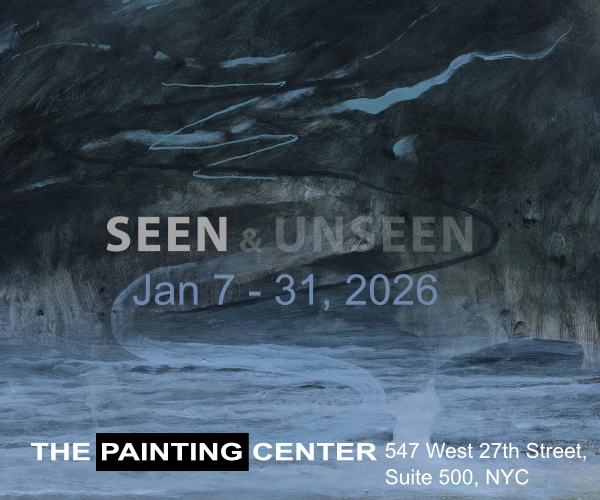
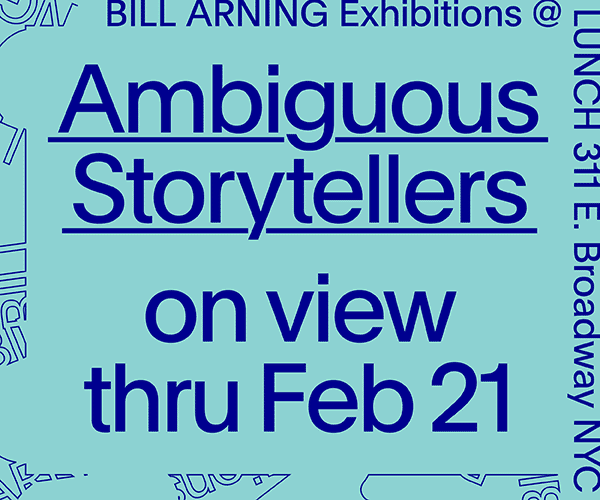

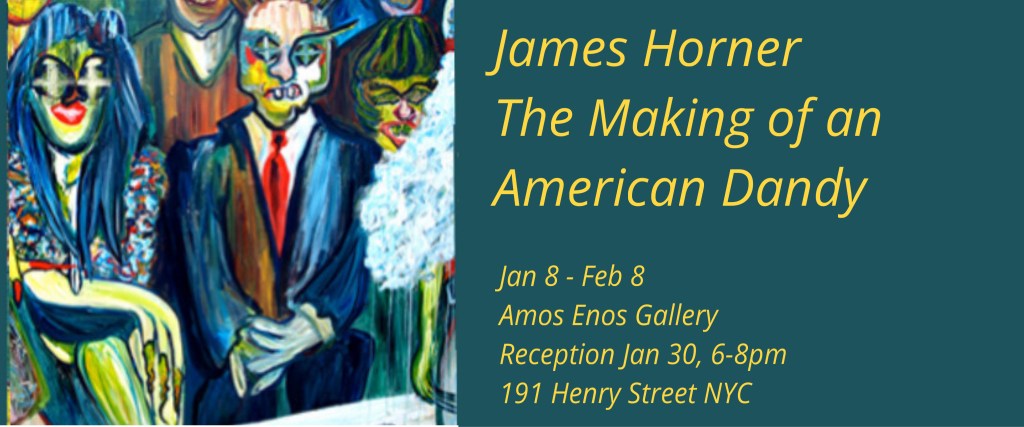
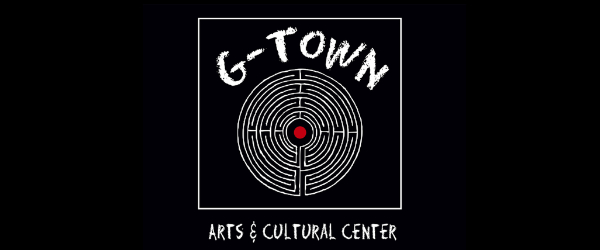
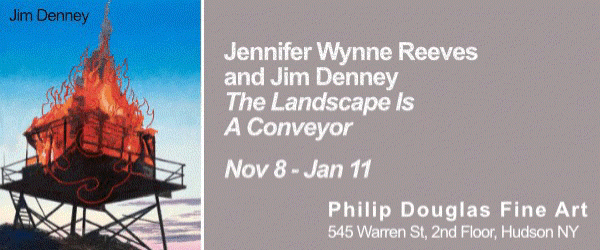












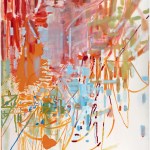
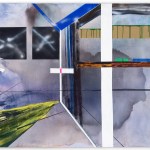
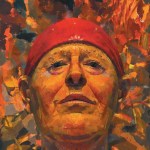
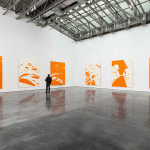
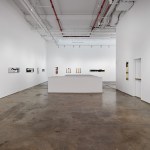
A really nice insight to place Dave Hickey in “the louche tradition.” I knew him a bit, and from everything I saw in him, and read in him, and learned from him, it fits.
Hickey would never survive in today’s art world. Aside from the fact that he was an old white male in an age that’s decided old white males are irrelevant, if not suspect, he embodied way too much rough Texas cowboy and what seemed to many like Vegas schmooziness for artists on the “elitist” coasts to tolerate.
It’s really too bad. As Irving Sandler repeatedly said near the end of his life, the flaccid quality of contemporary discourse on art came from the fact that there were no longer any polemics. In his passionate arguing for the idea that art is best understood as multiple overlapping circles of democracy, Dave was nothing if not polemical. His passionate convictions shined through everything he wrote, and made what he said exciting.
Beautiful writing wbout a beautiful writer.
From a review that Tablet published of Daniel Oppenheimer’s biography of Hickey, in June:
“Not only will beauty not save us, Oppenheimer warns, but it will be a struggle to save beauty from ‘the blob of curators, academics, review boards, arts organizations, governmental agencies, museum boards, and funding institutions that [have] claimed for themselves almost total control’ of the meaning and value of art. The blob, as Oppenheimer describes it, is the network of powers that includes not only the enforcers of an ever-narrower vision of ‘woke’ political correctness on the arts, but also those who contend with that vision either by calling on art to defend supposedly traditional values, or themselves defend art by speaking only of its formal, technical qualities. The blob is all the institutions and discourses that divert our attention away from beauty�the essence of art.”
It’s true that Hickey wouldn’t survive today because he was a white male, but that’s a second-order effect. The first order is that art has been taken over by a bureaucracy that by nature is hostile to anarchic private pleasure – pleasure that can’t be subsumed into the supposedly lofty priorities of the bureaucracy. It’s from the associated premises that heterosexual, white, and male pleasure become forms of moral filth; see, for instance, Holland Cotter’s review of the Titian show in Boston. But in fact it’s against any kind of pleasure that isn’t politically useful. What’s a hedonist to do?
One answer is for the hedonists to assault the bureaucracy until it’s properly ashamed of itself, not for its progressivism or conservatism (which in the case of the bureaucracy can hardly be defined), but for its anhedonia. We need a revolt of the pagans.